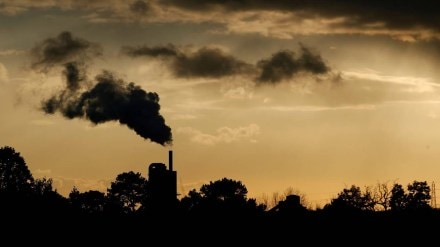Developed countries are primarily responsible for climate change; yet, their near-constant refrain has been that developing nations—especially India and China—must shoulder a disproportionate share in mitigation efforts. They have relied on proxies such as the demand to urgently and entirely phase out coal even though it is obvious that countries such as India has to depend on thermal power for some years. If that wasn’t enough for making the developed world’s climate hypocrisy clear, what should is the fact that they won’t be meeting their own 2030 emission reduction commitment made at the 2016 Paris climate meet.
An analysis by the Council on Energy, Environment, and Water (CEEW) finds, developed countries will collectively emit around 3.7 giga tonnes of extra carbon dioxide in 2020, against the their nationally determined commitment(NDC). This is a ~40% emission overshoot, with the US, the EU and Russia accounting for 83% of this. Just two out of 17 countries, Norway and Belarus, will achieve the goals set by them. That, however, is small consolation given that Norway was named in a report on countries whose fossil-fuel expansion plans till 2050 threatens to lock in the climate disaster the planet is headed towards. Indeed, it was among the five (the others being the US, Canada, Australia and the UK) that will account for just over half of the planned addition.
What the developed world does will impact the carbon budget available to developing nations in their quest for economic growth and the resulting social dividends for their populations. The ‘just-ness’ of energy transition at the global scale, therefore, depends on the developed world leaving enough carbon space for the developing and least developed nations even as they are aided in adoption of clean technologies. And, given that the Global South is set to bear the brunt of the planet getting warmer by more than 1.5oC from the pre-industrial level, climate justice would only be possible if developed nations were to act far more ambitiously than they have so far. Instead, they are set to fall short of even the modest goals they have themselves set. Their commitments for 2030 represent a 36% reduction in emissions from their 2019 levels, against the global average of 43% needed to keep the 1.5oC target alive. Add to this their failure to adequately fund the transition to cleaner fuels and technologies in the developed world. The goal of ‘$100 billion annually by 2020’ is being met only now, even as the funding requirement to stay on the 1.5oC pathway needs several trillions to flow to the developing world.
The developed countries’ abdication of responsibility would rob the Global South of its future. As the 28th Conference of Parties in Dubai draws near, the developed countries must rally together to insist on tangible action. The rich nations can’t get away with promises of sharper reductions post-2030 when the present doesn’t inspire much faith. Just five developed countries—the Czech Republic, Finland, Lithuania, Luxembourg, and Portugal—are linearly on track to achieve net zero by 2050, the CEEW analysis says, even as the West so enthusiastically embraced the concept and wanted the developing world announce commitments. The world needs the West to demonstrate the responsibility it expects of others.
